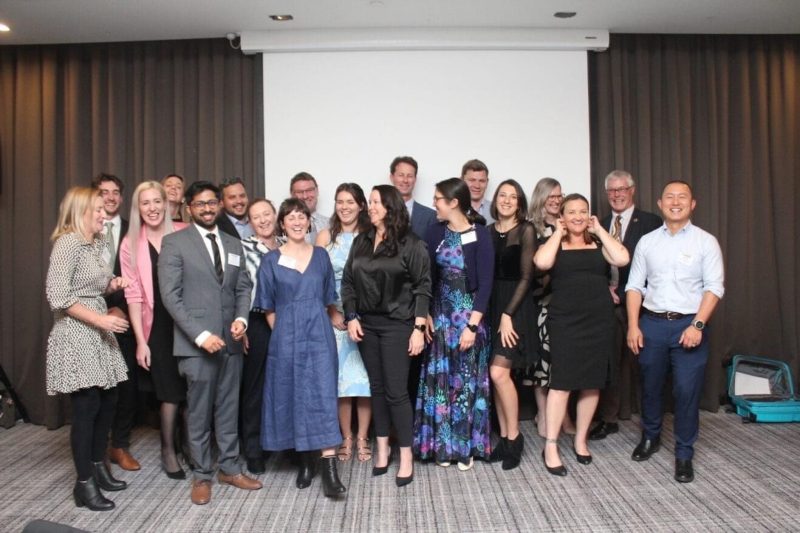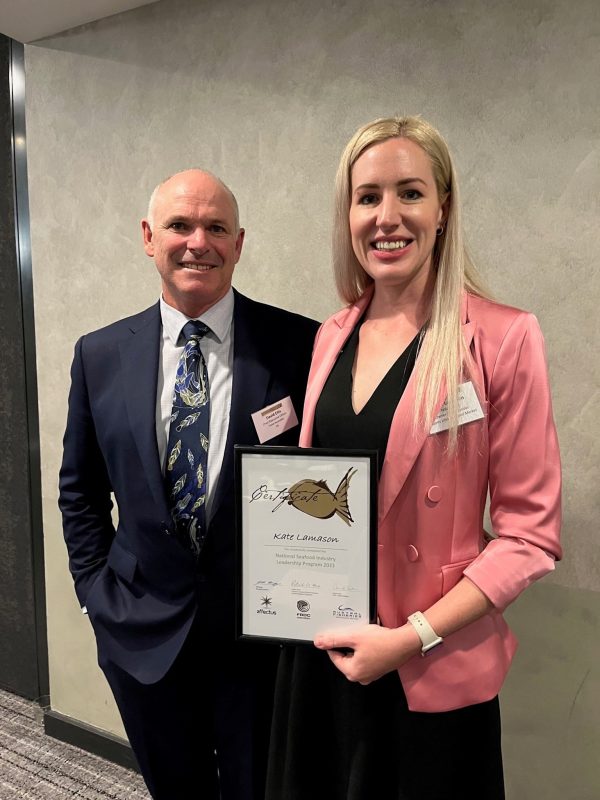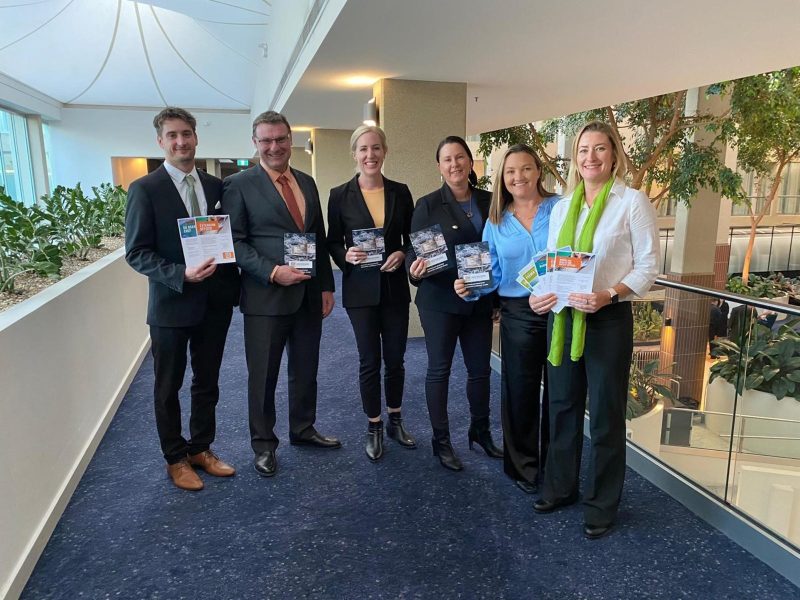‘Challenging and rewarding’: Kate Lamason graduates from the National Seafood Industry Leadership Program
Tuna Australia member Kate Lamason is the owner and co-founder of Little Tuna and Cairns Little Seafood Market. Here she shares her experience of completing the National Seafood Industry Leadership Program (NSILP) with support from Tuna Australia, graduating in September 2023.
Tell us about your journey in the seafood industry and your businesses.
My husband Rowan has been a tuna fisherman his whole life, so I have been lucky to have gained insight into the industry over the years. Then, in 2015, we started our own company, Little Tuna, as an innovative product to add value to our underutilised albacore tuna and fill a gap in the market for Australian-made tuna products.
In early 2022, we took over the family business Great Barrier Reef Tuna and rebranded it to Lamason Seafood with a local retail store, Cairns Little Seafood Market. We continue to specialise in wild-caught seafood with an ongoing focus on produce from our family’s fishing boats that longline out of North Queensland.
Our Cairns-based factory processes these fish and sends them domestically and internationally, ensuring the best return for premium produce. Through our national reach and direct connection with the fishers, we can actively showcase the catch, connect the consumer to the fishermen and promote sustainable fishing methods.

Kate Lamason's cohort of NSILP participants.
Why did you apply for the National Seafood Industry Leadership Program? How did you hear about it?
While I have been involved in the seafood industry for more than eight years, more recently, I have joined Rowan full-time. In 2022, I attended Seafood Directions as a Women in Seafood Australasia bursary holder and met the previous NSILP alumni. During this time, I chatted with Tuna Australia Program Manager Phil Ravanello, who completed the course in 2022 and provided a lot of encouragement and support. The challenge and the practical leadership skills and connections drew me to apply. I am a qualified accountant and eager to use my skills and knowledge acquired through the NSILP to add value to our fishing sector.

Kate Lamason with Tuna Australia CEO David Ellis.
What was your experience of the program?
The program comprises three in-person residentials held over six months with 17 other participants. For the final residency, we attended parliament to meet the ministers and presented a seafood industry-related team project. The other residencies were held in Hobart and Sydney, giving a diverse view of the Australian seafood industry across all its sectors and providing us with valuable insights from numerous industry leaders and professionals.
The program is filled with challenging leadership development sessions and activities, including hosting professional dinners, presentations, and panels.
What was the key highlight?
Canberra was a standout experience for me, especially the visit to parliament, where I discussed the challenges confronting the seafood industry with national leaders. I was particularly impressed by the innovative way Sydney Fish Market operates and the massive range of products they offer. I also really valued and enjoyed the opportunity to get to know my 17 other NSILP participants and hear their stories and the challenges they face.

Kate Lamason's project team in the NSILP.
How will you apply what you've learned to your work?
By completing this course, my network within the seafood industry has expanded significantly, and my knowledge has deepened. I had the opportunity to share my own story and convey the stories of our northern tuna fishery as well as the values of Little Tuna. It has given me a boost in confidence, especially around public speaking and presenting.
I’ve gained valuable leadership skills, which I will apply to my current and future roles in the tuna industry.
What advice would you give to others considering applying for the program?
It’s by far the best program I have participated in. It offers a challenging and rewarding firsthand insight into our seafood industry while working on building and developing strong specific leadership skills. Beyond that, the relationships made along the journey are lifelong connections. While the program required dedication and commitment the hard work is worth it, and the skills developed are highly practical.
Kate Lamason expressed her thanks to Tuna Australia for providing some financial support, saying “I couldn’t have done this without their support and appreciate this”.